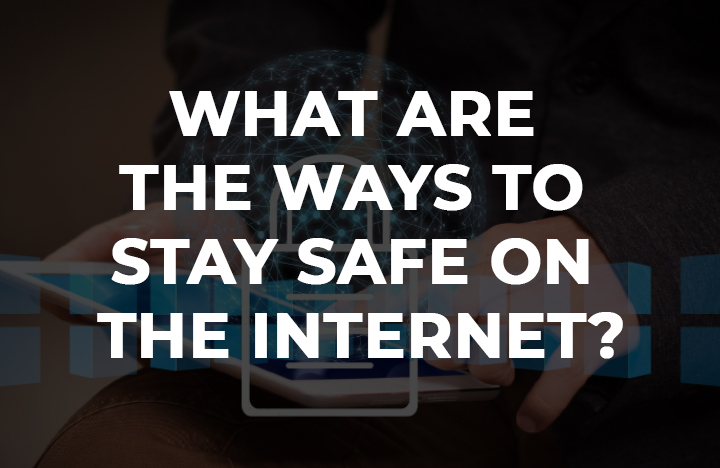The Internet is a huge part of many people’s everyday lives. It’s fun, useful, and informative, but can also be dangerous, no matter how safe you feel while browsing. By getting into the habit of using good Internet safety practices, you can protect your information and your identity for years to come. Take a look at these 10 easy tips for internet safety:
1. Don’t share your personal information When it comes to online safety, it goes without saying that you should never share your passwords, banking information, social media account access, or address online.
2. Double-check any links before you click When checking your email or scrolling through social media, make sure you know and trust any links before you click on them.
3. Use a secure public You should never use an unsecured (unlocked with no password) public Wi-Fi network unless you absolutely have to. And if you do use one, avoid logging into any of your accounts online or on apps or entering in any personal or financial information.
4. Use a VPN with your WI-FI connection A VPN, or virtual private network, securely connects your device to an internet server so that no one can monitor your activity or access your data through your internet connection.
5. Only log into sites that start with https:// Need to see your checking account balance? If you’re about to log into any site, make sure the address at the top of your web browser starts with https:// and not http://. You may also see a padlock symbol next to the site address.
6. Be careful who you and your children talk to Cyberbullying, threats, and harassment are very real online issues. We recommend being choosy about who you talk to and engage with online. And if they cross the line, document the issue and hit that block button. No one deserves to be treated that way.
7. Turn your bluetooth off A team of researchers found that Bluetooth communications can be compromised and even manipulated.They were able to exploit a vulnerability in a Bluetooth connection, then listen to and change the content of nearby Bluetooth communications.
8. Use antivirus and antimalware softwareYou should never surf the web without protection in place. Even if you’re on a budget, you can find free and low-cost antivirus software.Whatever the case, paying a little out of pocket for the software is worth it to avoid the headache of dealing with malware—or worse.
9. Create and use complex passwords Yup, we’re gonna beat that drum: you should always use complex passwords to improve internet safety. A strong password can do a lot to deter cyber criminals.
10. Backup your data Most Macs and PCs have an option to let you backup your data, and it’s worthwhile taking the time to do it every so often. Data backups can be a lifesaver if your computer gets infected with a virus: you should be able to restore your computer to its original state before it got infected.

Comments
Leave a comment